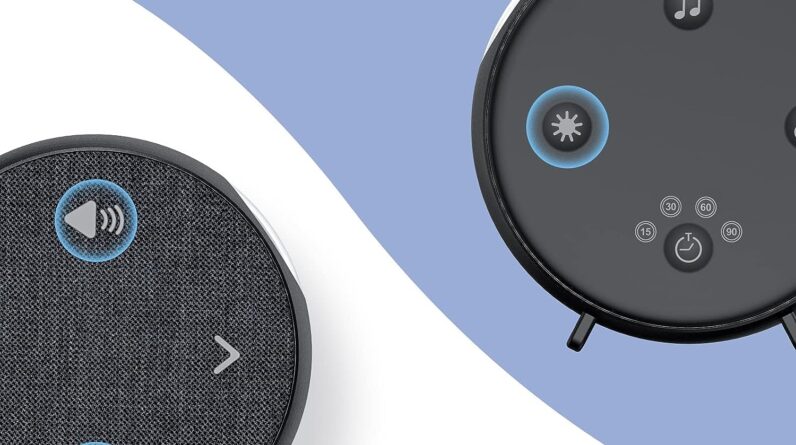
Jet lag and sleep disruptions can really put a damper on your travel experience, leaving you feeling tired and groggy. Luckily, there are some simple yet effective strategies you can implement to minimize jet lag and make the most of your sleep while on the go. By following a few key tips, you can ensure that you arrive at your destination feeling refreshed and ready to take on the world. So, whether you’re a seasoned traveler or embarking on your first adventure, here are some ways to avoid jet lag and optimize your sleep while traveling.

Table of Contents
Managing Sleep Before Travel
Establish a regular sleep schedule
To ensure you’re well-rested before your trip, it’s important to establish a regular sleep schedule. Try to go to bed and wake up at the same time each day, even on weekends. This will help regulate your body’s internal clock and make it easier to adjust to different time zones.
Get enough sleep leading up to the trip
In the days leading up to your trip, make sure you’re getting enough sleep. Aim for 7-9 hours of quality sleep each night. By prioritizing sleep, you’ll give your body the rest it needs to prepare for the journey ahead and reduce the chances of feeling fatigued or jet-lagged.
Avoid consuming caffeine or alcohol close to bedtime
Both caffeine and alcohol can disrupt your sleep patterns, so it’s best to avoid consuming them close to bedtime. Caffeine, found in coffee, tea, and some sodas, can keep you awake, while alcohol may interfere with the quality of your sleep. Opt for herbal tea or water in the hours leading up to bedtime.
Create a sleep-friendly environment in your bedroom
Your bedroom environment plays a significant role in the quality of your sleep. Make sure your room is dark, quiet, and at a comfortable temperature. Consider using blackout curtains or eye masks to block out any unwanted light and investing in earplugs or white noise machines to drown out any noise disturbances.
Consider using relaxation techniques or sleep aids
If you struggle with falling asleep or staying asleep, consider incorporating relaxation techniques into your bedtime routine. Deep breathing exercises, progressive muscle relaxation, or guided meditation can help calm your mind and prepare your body for sleep. Additionally, you may consider natural sleep aids, such as melatonin or herbal supplements, but always consult with a healthcare professional before trying any new sleep aids.
Adjusting to the Destination’s Time Zone
Gradually adjust your sleep schedule before departure
To minimize the impact of jet lag, try gradually adjusting your sleep schedule to match the time zone of your destination a few days before your departure. Shift your bedtime and wake-up time by 15-30 minutes each day until you align with the new time zone. This gradual adjustment will help your body adapt more easily when you arrive.
Expose yourself to natural light at appropriate times
Exposure to natural light can help reset your internal clock and regulate your sleep-wake cycle. If you’re traveling east, try to get outside and soak up the morning sunlight. If you’re traveling west, take advantage of the afternoon light. Spend time outdoors during the appropriate times to help your body acclimate to the new time zone.
Use blackout curtains or eye masks to regulate light exposure
When it comes to sleep, light exposure is crucial. To ensure a good night’s rest, use blackout curtains or eye masks to regulate the amount of light that enters your bedroom. By controlling the light exposure, you can create a sleep-friendly environment and signal to your body that it’s time to sleep, regardless of the local time.
Stay active and engage in physical activity during the day
Physical activity can help regulate your sleep-wake cycle and increase your overall energy levels. Try to incorporate exercise into your daily routine, even if it’s just a brisk walk or some stretching. Stay active during the day to promote better sleep at night and assist in adjusting to the new time zone.
Avoid taking long naps or sleeping excessively during the day
While it may be tempting to take a long nap after a tiring journey, it’s best to avoid excessive daytime sleep. Long naps can interfere with your ability to fall asleep at night and adjust to the new time zone. Instead, try to stay awake during the day and save your sleep for a full night’s rest when it aligns with the local bedtime.
Managing Sleep During the Flight
Choose overnight flights whenever possible
If your travel plans allow for it, opt for overnight flights. These flights align with your body’s natural sleep-wake cycle and can help you adjust to the destination’s time zone more seamlessly. By getting some rest during the flight, you’ll arrive feeling more refreshed and ready to take on the day.
Book a comfortable seat and consider using travel pillows or cushions
Comfort is key when it comes to managing sleep during a flight. Choose a seat that allows for ample legroom and provides the necessary support for your neck and back. Consider bringing travel pillows or cushions to help you find a comfortable position, whether you’re sitting upright or trying to catch some sleep.
Wear comfortable clothing and invest in noise-canceling headphones
To maximize your comfort during the flight, wear loose-fitting and breathable clothing. Avoid tight or restrictive garments that can hinder your ability to relax and sleep. Additionally, invest in noise-canceling headphones to block out any cabin noise and create a more peaceful environment for sleep.
Avoid consuming caffeine or heavy meals on the flight
Caffeine can disrupt your sleep, and heavy meals can cause discomfort and interfere with your ability to relax. Avoid consuming caffeine-containing beverages like coffee or energy drinks during the flight. Opt for water or herbal tea instead. Similarly, choose light and easily digestible meals to ensure that your body can fully relax and rest.
Use earplugs or sleep masks to create a conducive sleep environment
The airplane environment can be noisy and bright, making it challenging to sleep. To combat these distractions, use earplugs to block out the noise and sleep masks to create darkness. By creating a conducive sleep environment, you’ll have a better chance of catching some quality rest during the flight.
Focusing on Hydration
Drink plenty of water before, during, and after the flight
Staying hydrated is crucial during air travel. The dry cabin air can dehydrate your body, leading to fatigue and other discomforts. Drink plenty of water before, during, and after the flight to maintain adequate hydration levels. Pack a refillable water bottle and ask flight attendants to fill it as needed.
Limit alcohol and caffeine consumption
Alcohol and caffeine both have dehydrating effects on the body, so it’s best to limit their consumption during the flight. Alcohol can also interfere with your sleep patterns and leave you feeling groggy upon arrival. Opt for water, herbal tea, or fruit-infused beverages instead to stay hydrated and minimize the risk of jet lag symptoms.
Moisturize your skin and use hydrating products
The dry cabin air can also take a toll on your skin. Carry a small bottle of moisturizer and apply it generously to keep your skin hydrated throughout the flight. Consider using hydrating facial mists or other skincare products to refresh and nourish your skin. Hydrated skin will leave you feeling more comfortable and revitalized.
Use nasal sprays or saline solutions to combat dryness
In addition to moisturizing your skin, it’s important to combat dryness in your nasal passages. Dry nasal passages can cause discomfort and even affect your breathing. To alleviate this, use nasal sprays or saline solutions to keep your nasal passages moist and prevent dryness. This simple step can improve your overall comfort during the flight.
Avoid excessive consumption of salty or sugary foods
Salty and sugary foods can contribute to dehydration and leave you feeling sluggish. Avoid excessive consumption of these types of foods before and during the flight. Instead, opt for hydrating fruits and vegetables, and choose balanced meals that provide you with the necessary nutrients to sustain your energy levels.

Maintaining Healthy Habits
Stick to a nutritious diet while traveling
Maintaining a nutritious diet while traveling is crucial for your overall well-being and energy levels. Choose wholesome and balanced meals that include fruits, vegetables, lean proteins, and whole grains. Avoid excessive consumption of processed foods or sugary snacks, as they can leave you feeling lethargic and impact your sleep quality.
Stay active by incorporating exercise or walking into your itinerary
Traveling often means spending long hours sitting or standing in one place. To counteract the sedentary nature of travel, incorporate exercise or walking into your itinerary. Take the opportunity to explore your destination on foot, visit local parks, or find hotel gyms where you can engage in regular workouts. Staying active will help regulate your sleep and keep your energy levels up.
Practice relaxation techniques, such as yoga or meditation
Relaxation techniques can help reduce stress, promote relaxation, and improve your sleep quality. Consider practicing yoga, meditation, or deep breathing exercises during your travels. These practices can help calm your mind, relieve muscle tension, and prepare your body for restful sleep, especially after a long day of exploring and traveling.
Avoid overindulging in alcohol or unhealthy meals
Traveling often involves experiencing new cuisines and indulging in local delicacies. While it’s important to enjoy yourself, be mindful of how much alcohol you consume and how often you indulge in unhealthy meals. Alcohol can disrupt your sleep, and unhealthy meals can leave you feeling sluggish. Practice moderation and prioritize balanced meals for optimal sleep and overall health.
Maintain a consistent sleep schedule while at the destination
Once you arrive at your destination, try to maintain a consistent sleep schedule as much as possible. Just like before your trip, establish a regular bedtime and wake-up time. Consistency will help regulate your body’s internal clock and make it easier to adjust to the local time zone. Stick to your sleep schedule even on weekends or days when you’re exploring the destination.
Managing Jet Lag Symptoms
Stay hydrated to alleviate fatigue and headaches
Jet lag can often cause fatigue and headaches, which can be alleviated by staying hydrated. Drink plenty of water throughout the day to combat these symptoms. Additionally, consider incorporating electrolyte-rich beverages or hydrating foods, such as watermelon or cucumber, to replenish essential minerals and combat jet lag-related fatigue.
Expose yourself to natural light to adjust circadian rhythms
Exposure to natural light is crucial in adjusting your circadian rhythms and overcoming jet lag symptoms. Spend time outdoors during daylight hours to help your body adjust to the local time zone. Take a walk, have your meals outside, or simply sit by a window to absorb the natural light and signal to your body that it’s time to be awake.
Consider taking short power naps to combat excessive daytime sleepiness
If you’re feeling excessively sleepy during the day, consider taking short power naps to combat daytime drowsiness. Keep your naps between 20-30 minutes to avoid falling into a deep sleep, which can leave you feeling groggy. Power napping can provide a quick boost of energy and improve your overall alertness during the day.
Manage meal times to regulate digestion and energy levels
Meal timing plays a role in regulating your digestion and maintaining stable energy levels. Try to align your meal times with the local time zone as soon as possible. Eating meals at regular intervals will help regulate your body’s internal clock, aid digestion, and provide you with the necessary nutrients to sustain your energy throughout the day.
Consult a healthcare professional for melatonin or jet lag remedies
If you’re looking for additional assistance in managing jet lag symptoms, consider consulting a healthcare professional or sleep specialist. They can provide personalized advice and recommend appropriate remedies, such as melatonin supplements or other jet lag-specific treatments. Always consult with a professional before trying any new supplements or medications.

Utilizing Technology and Apps
Use sleep tracking apps to monitor sleep quality and patterns
Sleep tracking apps can provide valuable insights into your sleep quality and patterns. Consider using these apps to monitor your sleep duration, sleep cycles, and any disturbances during the night. This information can help you identify areas for improvement and make adjustments to optimize your sleep while traveling.
Try noise-masking apps or white noise machines for better sleep
If you’re sensitive to noise disruptions during sleep, try using noise-masking apps or portable white noise machines. These tools can create a consistent and soothing background noise, masking any disruptive sounds that may interfere with your sleep. Experiment with different sounds, such as rainfall or gentle waves, to find what works best for you.
Utilize meditation or relaxation apps to reduce stress and promote sleep
Meditation and relaxation apps can be valuable resources for reducing stress and promoting sleep. Explore different apps that offer guided meditations, breathing exercises, or nature sounds to help you unwind and prepare for sleep. Incorporating these practices into your nightly routine can enhance your sleep quality and overall well-being.
Research and download jet lag specific apps for personalized guidance
There are several apps available specifically designed to help you manage jet lag. These apps provide personalized guidance based on your flight details and destination. They offer customized sleep schedules, light exposure recommendations, and other jet lag-specific tips to help you optimize your sleep and adjust to the new time zone more effectively.
Consider using blue light filters or apps to minimize sleep disruptions
The blue light emitted by electronic devices, such as smartphones and tablets, can interfere with your sleep quality. Consider using blue light filters or apps that adjust the color temperature of your screen to minimize sleep disruptions. These filters reduce the amount of blue light emitted, making it easier for your body to wind down and fall asleep.
Making Adjustments to Accommodation
Choose accommodation with sleep-friendly amenities
When selecting accommodation, prioritize options that offer sleep-friendly amenities. Look for hotels or rentals that provide quality mattresses, blackout curtains, and soundproofed rooms. Additionally, inquire about their noise policy to ensure a peaceful environment for sleep.
Request a quiet room or use noise-cancelling devices
During the booking process or upon check-in, you can request a quiet room away from high-traffic areas or noisy facilities. If that’s not available, consider using noise-cancelling devices, such as headphones or earplugs, to block out any disruptive sounds and create a more peaceful sleeping environment.
Check room temperature and adjust it to your preference
Room temperature can significantly impact your sleep quality. Check the thermostat in your accommodation and adjust it to a temperature that suits your preference. Sleeping in a room that’s too hot or too cold can disrupt your sleep and leave you feeling uncomfortable throughout the night.
Ensure comfortable bedding and pillows for quality sleep
Uncomfortable bedding and pillows can have a significant impact on your sleep quality. Ensure that your accommodation provides high-quality and comfortable bedding with suitable support for your neck and back. If needed, consider bringing your own pillows or travel-sized mattress toppers to enhance your comfort and ensure a restful sleep.
Consider booking accommodations away from noisy or busy areas
To minimize noise disruptions during your stay, consider booking accommodations away from noisy or busy areas. Research the surrounding neighborhood and read reviews to gauge the noise levels. Choosing a quieter location can contribute to better sleep quality and overall relaxation during your trip.
Managing Work and Travel
Plan work schedule and deadlines accordingly to reduce stress
If you’re combining work and travel, it’s important to plan your work schedule and deadlines accordingly to reduce stress. Prioritize essential tasks and allocate dedicated work time in your itinerary. By managing your workload effectively, you’ll be able to enjoy your travel experience without feeling overwhelmed.
Create a balance between work and relaxation time
While work is important, it’s equally crucial to create a balance between work and relaxation time. Set boundaries and allow yourself time to explore, unwind, and enjoy the destination. By incorporating leisure activities into your itinerary, you’ll reduce stress levels and enhance your overall well-being.
Practice good time management to avoid working late into the night
Poor time management can lead to working late into the night, depriving you of quality sleep and contributing to jet lag symptoms. Practice good time management skills, set realistic deadlines, and prioritize tasks effectively. By being organized and efficient with your work, you’ll have more time to rest and recharge.
Disconnect from work-related devices and notifications when necessary
To ensure a restful and uninterrupted sleep, it’s important to disconnect from work-related devices and notifications when necessary. During your designated sleep time, put your phone on silent or enable the “Do Not Disturb” mode. Disconnecting from work will help your mind relax and allow you to fully enjoy your sleep.
Ensure you have suitable equipment for productive work on the go
If you’re planning to work while traveling, ensure you have suitable equipment for productive work on the go. Invest in a lightweight laptop or tablet and consider portable chargers or extra batteries to keep your devices powered throughout the day. Having the right equipment will enable you to work efficiently without added stress.
Considering Professional Advice
Consult a healthcare professional or sleep specialist for personalized advice
For personalized advice on managing sleep and jet lag, consider consulting a healthcare professional or sleep specialist. They can help assess your specific needs and provide tailored recommendations to optimize your sleep while traveling. A professional’s expertise will ensure you have the most effective strategies for overcoming jet lag and maintaining healthy sleep patterns.
Seek guidance from travel experts or experienced travelers
Travel experts and experienced travelers can offer valuable insights and tips for managing sleep and jet lag. Reach out to friends, family, or online communities dedicated to travel. Engage in conversations and listen to the experiences of others who have successfully navigated sleep-related challenges while traveling.
Join online communities or forums to share experiences and tips
Joining online communities or forums that focus on sleep, travel, or jet lag can provide you with a wealth of knowledge and support. Interact with fellow travelers, ask questions, and share your experiences. These communities often include seasoned travelers who have found effective strategies for managing sleep and can offer valuable advice.
Attend seminars or workshops on managing jet lag and optimizing sleep
Seminars or workshops dedicated to managing jet lag and optimizing sleep can provide you with comprehensive information and practical strategies. Look for travel-related events or wellness conferences that offer sessions on this topic. Attending these events can equip you with the latest research and insights from industry professionals.
Stay informed about the latest research and sleep-related advancements
Stay informed about the latest research and advancements in sleep science and travel-related sleep issues. Read articles, books, or scientific studies that delve into sleep patterns, circadian rhythms, and jet lag management. Being aware of the latest findings can help you make informed decisions and adopt effective strategies to optimize your sleep while traveling.
By following these tips and implementing the strategies outlined above, you can avoid jet lag and optimize your sleep while traveling. Remember to prioritize your sleep, stay hydrated, maintain healthy habits, and seek professional advice when needed. With a little planning and mindful preparation, you can ensure a well-rested and enjoyable travel experience.





